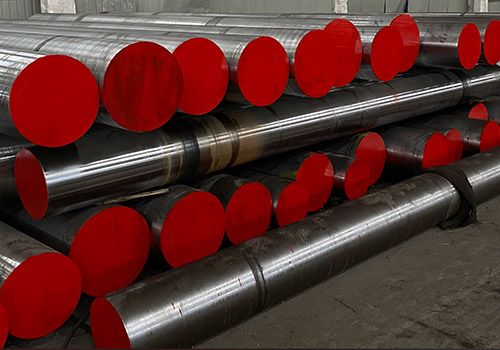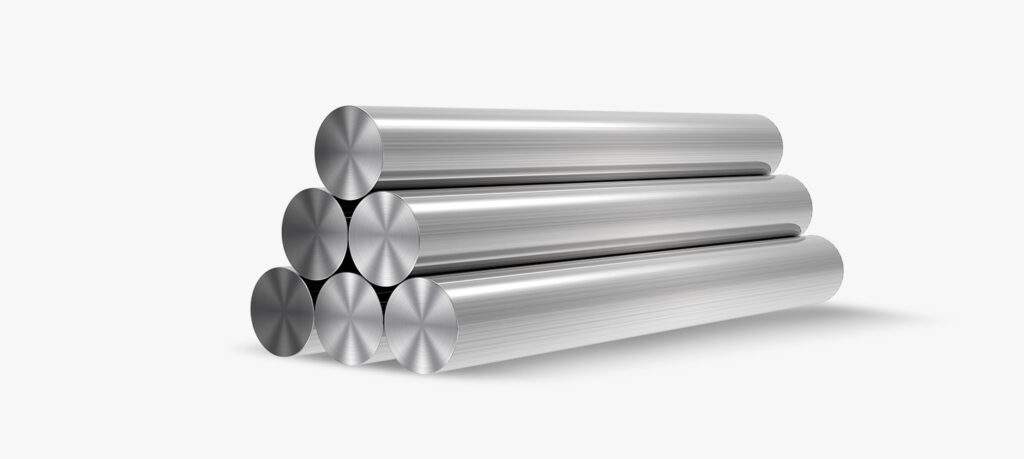
1020 Steel Rod: A Guide to Its Properties and Uses
Table of Contents
Henan Jiyuan Iron and Steel (Group) Co., Ltd. was founded in 1958. It has rich experience in production and research and development. It provides you with one-stop steel services and welcomes consultations from customers around the world.
Introduction
Steel is one of the most widely used materials in construction, manufacturing, and various industries due to its versatility and strength. Among the many types of steel, 1020 steel rod is a low-carbon steel that stands out for its balance of strength, ductility, and affordability. This makes it an ideal choice for applications that require durability without the complexities of higher-carbon steels.
In this comprehensive guide, we will explore the properties of 1020 steel rod, its key benefits, and its common uses across various industries. We will also address common questions about working with 1020 steel rod and provide insight into its performance in specific applications.
Key Properties of 1020 Steel Rod

Composition of 1020 Steel Rod
1020 steel rod is classified as a low-carbon steel, meaning it contains a relatively low amount of carbon, typically between 0.18% and 0.23%. The low carbon content makes this steel easier to machine, weld, and form compared to higher-carbon steels. In addition to carbon, 1020 steel contains small amounts of manganese (0.30% to 0.60%) and trace elements of sulfur and phosphorus.
This composition gives 1020 steel rod a good balance of strength, ductility, and toughness, making it an excellent choice for a variety of applications that require malleability and strength without extreme hardness.
Mechanical Properties of 1020 Steel Rod
The mechanical properties of 1020 steel round bar make it suitable for many structural and industrial uses. Here are some key mechanical characteristics:
- Tensile Strength: 1020 steel round bar has a tensile strength of approximately 420 MPa (megapascals), providing sufficient strength for moderate loads and stresses.
- Yield Strength: The yield strength of 1020 steel round bar is about 350 MPa, meaning it can withstand a significant amount of stress before permanently deforming.
- Hardness: On the Brinell hardness scale, 1020 steel round bar typically has a rating of 111 HB, which gives it a moderate level of hardness suitable for general use.
- Elongation: 1020 steel rod has good elongation properties (about 25% in 50mm), allowing it to bend and stretch without breaking.
These properties make 1020 steel round bar a versatile material, suitable for a range of applications from mechanical components to structural support systems.
Table: Comparison of 1020 Steel Rod with Other Steel Grades
| Property | 1020 Steel Rod | 1018 Steel Rod | 1045 Steel Rod | A36 Steel Rod |
|---|---|---|---|---|
| Carbon Content (%) | 0.18 – 0.23 | 0.14 – 0.20 | 0.43 – 0.50 | 0.26 – 0.29 |
| Tensile Strength (MPa) | 420 | 440 | 570 | 400 |
| Yield Strength (MPa) | 350 | 370 | 450 | 250 |
| Hardness (Brinell) | 111 | 126 | 187 | 119 |
| Weldability | Excellent | Excellent | Moderate | Good |
| Machinability | Excellent | Very Good | Fair | Good |
This table highlights the key differences between 1020 steel rod and other common steel grades. 1020 steel rod strikes a balance between weldability, machinability, and strength, making it a versatile material for various applications.
Common Uses of 1020 Steel Rod

1020 Steel Rod in Manufacturing and Machining
One of the most common uses for 1020 steel rod is in manufacturing and machining. Due to its excellent machinability, 1020 steel rod is widely used for producing parts that require precision, such as gears, shafts, pins, and bolts. Its low carbon content makes it easy to cut, drill, and shape using standard machining tools, allowing for high productivity and efficiency in production processes.
Additionally, 1020 steel rod can be cold-drawn to improve its strength and surface finish, making it a popular choice for parts that need a polished appearance or tighter dimensional tolerances.
Structural Applications of 1020 Steel Rod
1020 steel rod is often used in structural applications where strength and durability are important. Its moderate strength and good ductility make it suitable for components like beams, braces, and support columns in buildings, bridges, and other structures. While it may not have the high strength of higher-carbon steels like 1045, 1020 steel rod provides sufficient strength for most structural applications at a lower cost.
In construction, 1020 steel rod is frequently used for reinforcement in concrete, as well as in the fabrication of lightweight frameworks and trusses.
Welding and Fabrication
The excellent weldability of 1020 steel round bar makes it a popular choice for fabrication projects. It can be welded using standard methods such as MIG, TIG, or stick welding without the need for special preheating or post-weld treatment. This ease of welding makes 1020 steel rod ideal for use in metal fabrication shops where custom components are produced for a wide range of industries.
In addition to welding, 1020 steel round bar is also commonly used in brazing and soldering applications due to its good compatibility with various filler materials.
Benefits of Using 1020 Steel Rod in Industrial Applications

Cost-Effective Material
One of the primary benefits of 1020 steel round bar is its affordability. As a low-carbon steel, it is less expensive to produce than higher-alloyed or higher-carbon steels, making it an economical choice for large-scale manufacturing and construction projects. The lower cost does not come at the expense of performance, as 1020 steel round bar still offers good strength and durability for most applications.
Ease of Machining and Fabrication
1020 steel round bar’s machinability is one of its standout features. Its low carbon content allows it to be easily cut, drilled, and shaped into a wide variety of forms, making it an ideal material for complex components that require precision. The material’s ease of machining also translates into lower labor and tooling costs in manufacturing, further enhancing its cost-effectiveness.
Versatility Across Industries
Due to its favorable combination of strength, ductility, and weldability, 1020 steel round bar is used in a wide range of industries, including automotive, aerospace, construction, and agriculture. From vehicle components and agricultural equipment to metal structures and frames, 1020 steel round bar’s versatility makes it a go-to material for countless applications.
Conclusion
1020 steel rod is a versatile and reliable material that offers a good balance of strength, machinability, and affordability. Its low carbon content makes it easy to machine and weld, while its moderate strength and ductility allow it to perform well in a wide range of applications, from precision machining to structural components. Whether you’re working on a large construction project or fabricating custom parts, 1020 steel round bar is a cost-effective solution that delivers reliable performance across industries.
By understanding the properties and uses of 1020 steel round bar, manufacturers and engineers can make informed decisions about its suitability for specific projects, ensuring both efficiency and quality in their work.
FAQ
What is 1020 steel rod commonly used for?
1020 steel round bar is commonly used in manufacturing, machining, and construction applications. It is ideal for producing parts like gears, shafts, and bolts, as well as for structural components in buildings and bridges.
Can 1020 steel round bar be welded easily?
Yes, 1020 steel round bar is known for its excellent weldability. It can be welded using standard methods like MIG, TIG, or stick welding without the need for special procedures.
How does 1020 steel round bar compare to 1045 steel rod?
1020 steel round bar has a lower carbon content than 1045 steel rod, making it more ductile and easier to machine and weld. However, 1045 steel rod offers higher strength and hardness, making it better suited for heavy-duty applications.
Is 1020 steel round bar suitable for cold forming?
Yes, 1020 steel round bar is well-suited for cold forming processes like bending and drawing due to its good ductility and low carbon content.
What are the mechanical properties of 1020 steel round bar?
1020 steel round bar has a tensile strength of approximately 420 MPa, a yield strength of 350 MPa, and a Brinell hardness of 111 HB. These properties make it suitable for general-purpose applications that require moderate strength and good ductility.






